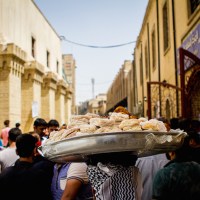
There’s an old saying in Arabic: “Egypt writes, Lebanon publishes, and Iraq reads.”
Literature has a long, rich history in this part of the world. For many, poets are rockstars, held up as cultural heroes, rebels, and thought leaders. Writers and professors are held in high regard, feared by religious extremists. Books are objects worthy of respect and are kept off the floor and away from feet, cleaned and available to visitors.
In fact, the Arabic word for literature—abab—comes from a word meaning “to invite someone for a meal.” Reading is a social event to be enjoyed together, a chance for people to discuss ideas.
And there is no better place to enjoy this literary culture than in Baghdad’s Mutannabi Street.
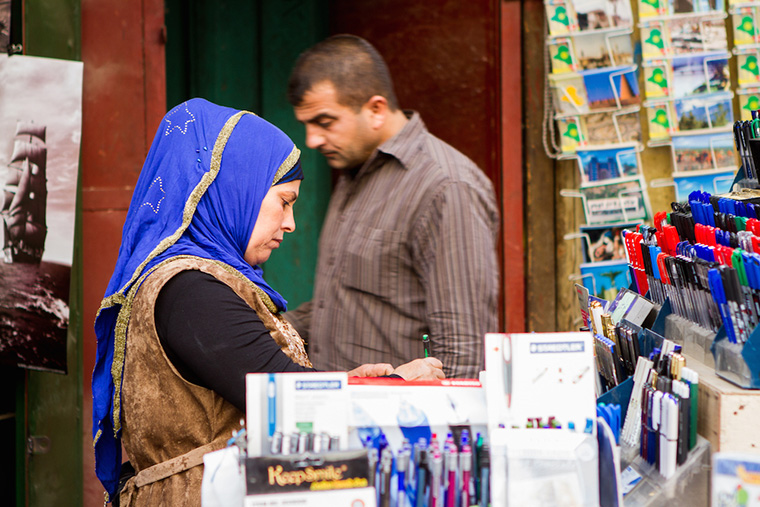

On most trips to Baghdad, we hop from place to place visiting ISIS-survivors, hugging necks, and making sure our friends and partners are well, but the opportunity to visit Mutannabi was a treat too good to pass up!
A quick pat-down, a glance in your bags, and you step into a sea of books, coffee, paintings, and passionate discussions in French, English, Arabic, Persian, Kurdish, and who knows what else. You’d think you were in Venice or Paris, the buildings and stalls are so beautiful.
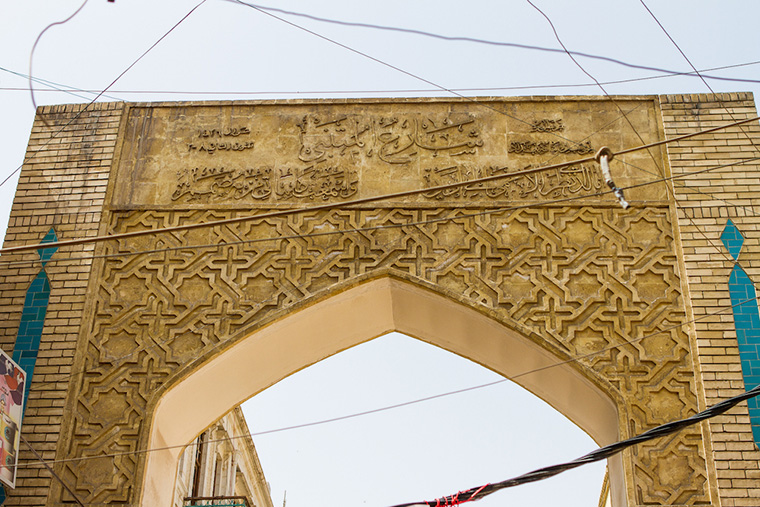

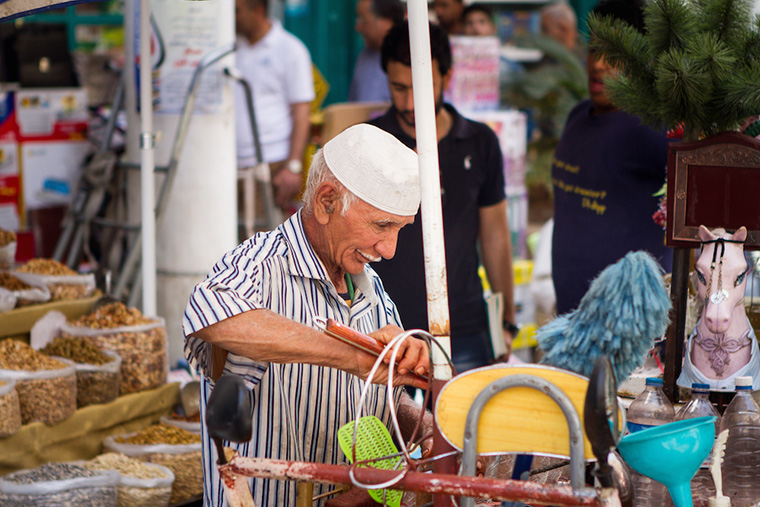
Poetry readings and bake sales are common. Charities take donations for refugees and the disabled. Book stalls boast first editions and old tomes—many of them hundreds of years old!
It’s just a small side street in an ancient neighborhood, but the symbolism of the place is profound. This street, and all it represents, symbolizes free thought and the exchange of ideas in Iraq, and it has known its share of difficulty.
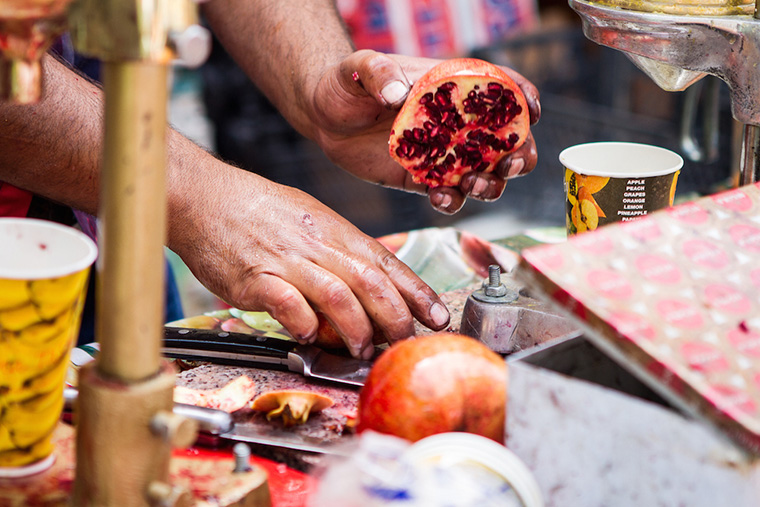
In March 2007, a massive explosion destroyed a part of Mutanabbi Street and killed 26 people. It was an assault on people and a place, but it was ultimately an attack on freedom of thought itself.
Government-approved bulldozer teams accompanied by armed guards have also destroyed the book stalls of Mutanabbi in recent years. Each time, vendors rebuilt stalls and local Iraqis donated thousands of books to keep the street alive.
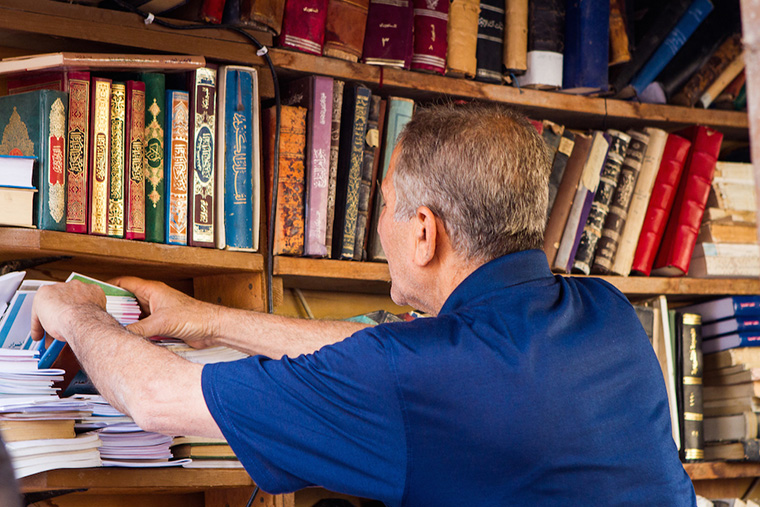
One woman wiped away tears as she held a book: “Under the [Saddam Hussein] regime, you could be imprisoned or killed for owning this book.”
One elderly man grabbed my arm and said, “Sit down, sit down. Where are you from? Tell me what you like to read.”
Young artists paint and sell pieces in a nearby square, an art teacher offering feedback on their work.
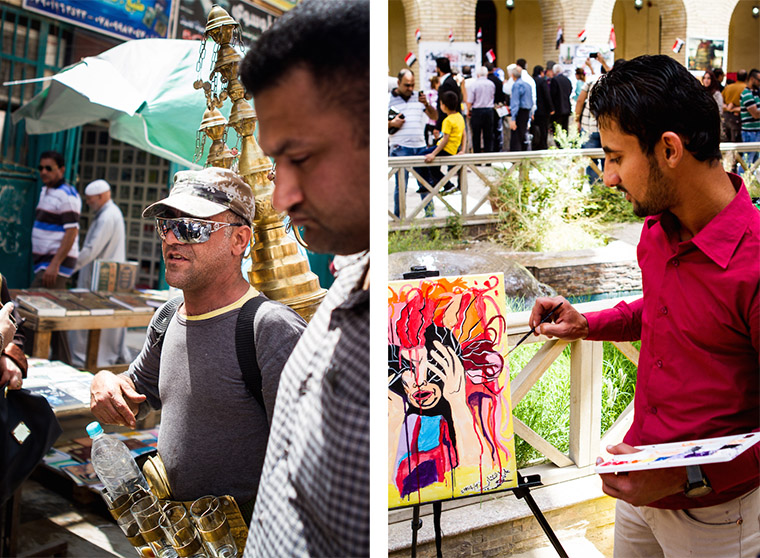
These people come back to Mutanabbi knowing the risks. The street stands for a kind of freedom that extremist groups like ISIS hate, but it’s the kind of place that attracts courageous tastemakers who refuse to let fear and simple stories win the day.
As long as people are brave enough to reject extremism and ideas as a community, this little lane will continue resurrecting itself, offering the openness and intellectual courage so many Iraqis are dying for.

